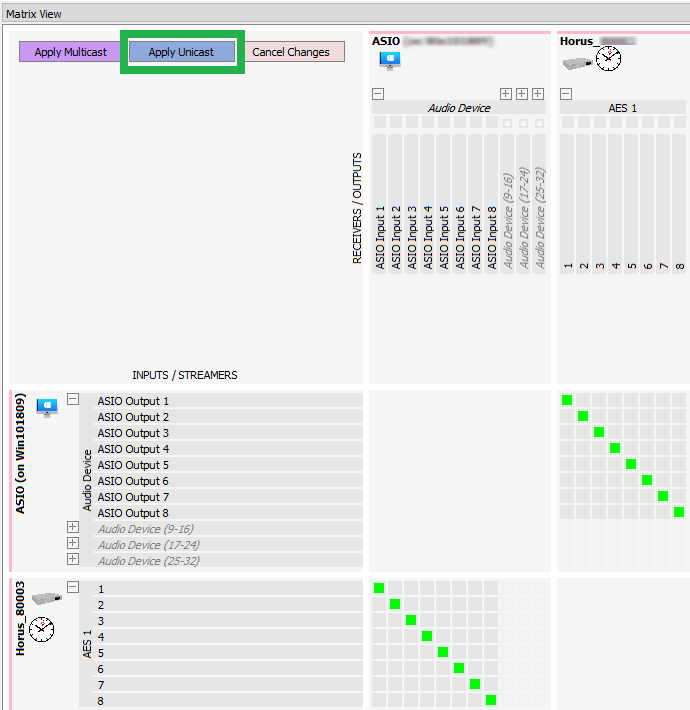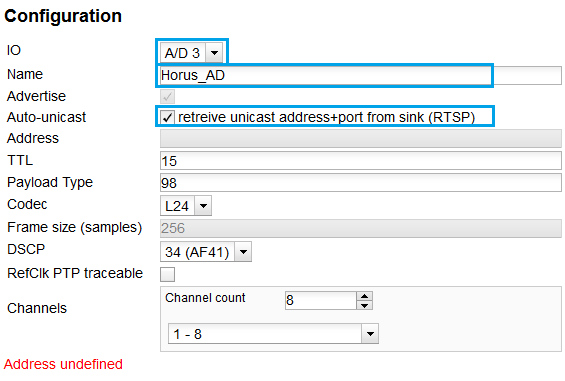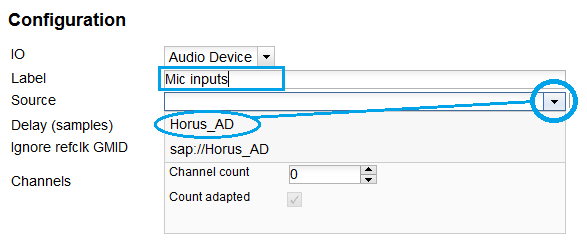Automatic Unicast connections.
Horus / Hapi Firmware v3.9.3 (or above)
Anubis Firmware v1.0 (or above)
MassCore Pyramix v12.0 / Ovation v8.0
Ravenna ASIO v12.0 / Merging Audio Device V1 (or above)
CoreAudio / Virtual Audio Device v2.0.40016 (or above)
ANEMAN v1.1.7 (or above)
Unicast: from one source to one destination i.e. One-to-One
Multicast: from one source to multiple destinations stating an interest in receiving the traffic i.e. One-to-Many
Multicast audio connections allows several nodes to "listen" to a single source, but the network configuration must be multicast capable (managed switches) and properly configured (otherwise there will be audio issues, or no audio at all).
Unicast network configuration is much simpler, and does not require advanced configuration.
But Unicast audio requires to create 1 source per destination, while Multicast allows to have 1 single source to be sent to several destinations, which changes the network bandwidth used.
1 source is listened to by 1 destination : Unicast and Multicast uses the same bandwidth.
- 1 source is listened to by 3 destinations : Unicast will use 3 times more bandwidth than Multicast, as 3 sources will need to be created.
AUTO - UNICAST FEATURE IS ONLY AVAILABLE ON MERGING PRODUCTS
Note : Broadcast is not allowed.
Auto-Unicast connections using ANEMAN 1.1.7.
- Prepare the required connections between the devices using ANEMAN Matrix.
- Click on Apply Unicast
If only Apply Multicast is displayed, the device is not compatible with Unicast, please consult the device manual.
Auto-Unicast connections using the Advanced pages
We will use a Horus and an ASIO driver for this example.
- In MTDiscovery, right click on the required hardware device (Horus in our example) and select Open Advanced.
- Go in the Session sources tab
- On the left hand pane, click on the Create Session button
- Select the required IO (physical input) and name your connection
- Tick the "retrieve unicast address+port from sink" checkbox
A "Address undefined"error message will show up, this is normal at this stage. - Back in MTDiscovery, right click on the required software device (ASIO in our example) and select Open
Note: your ASIO Host or MassCore application must be started - Go in the Session sinks tab
- On the left hand pane, click on the Create Session button
- Label the connection
- Click on the arrow next to the Source field.
The available sources will be listed, select the required one.
Restriction : auto-unicast does not work with SAP sources, do not select a sap:// prefixed source) - The channel count will be automatically adapted (Count adapted option)
The connection icon will turn green and status will change to "receiving RTX packets". - You may go back to the hardware device Session sources page, the connection icon is also green.
The Auto-unicast mechanism has automatically added the sink unicast IP address. - Repeat the same operation, but this time from the software device Session sources (our example ASIO) to the hardware device Session sinks (Horus).







